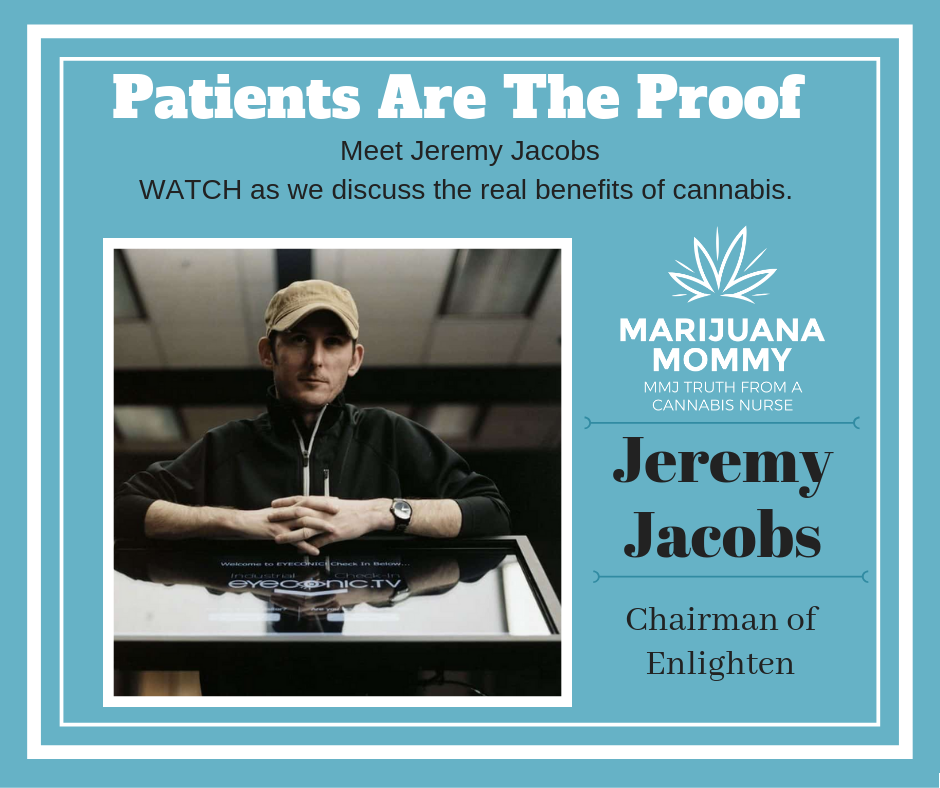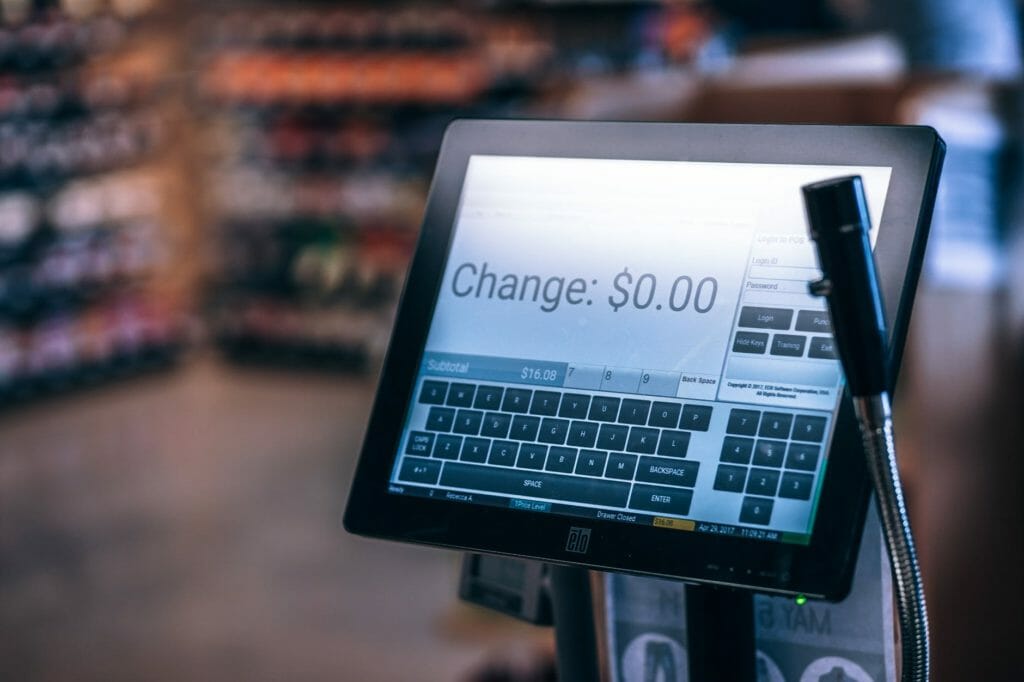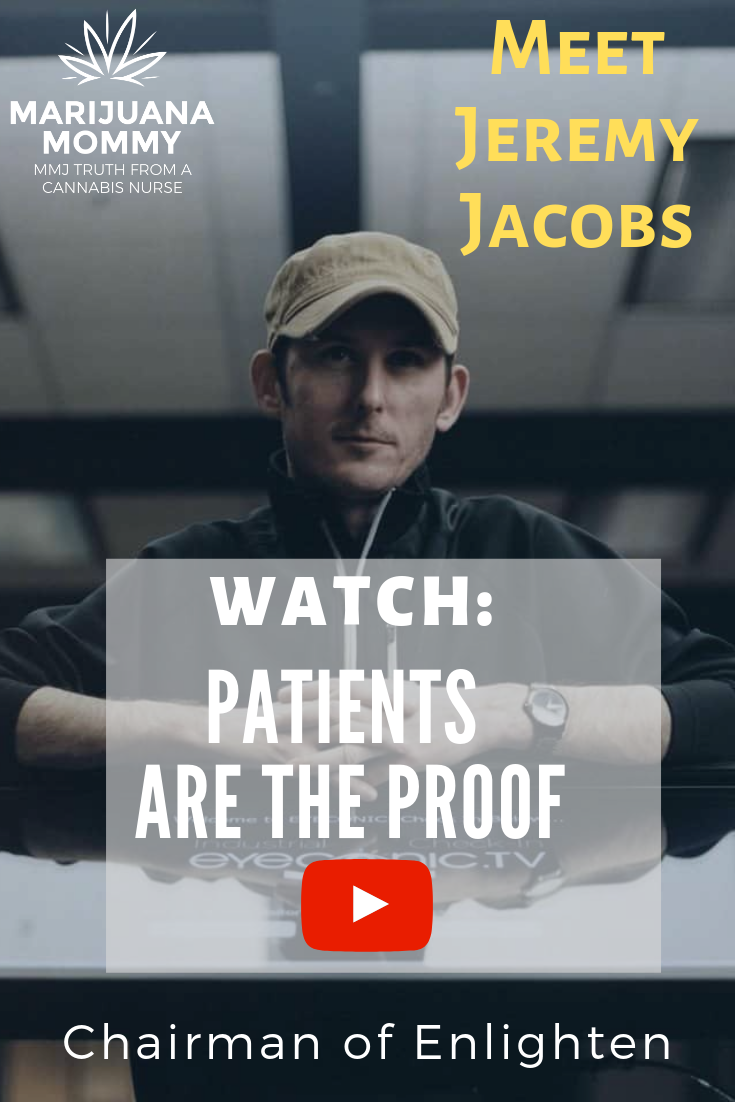This website is informational and cannot diagnose or treat illness or disease. Medical marijuana should be used under the direction of a licensed healthcare provider. This site contains advertisements. If you click a link and make a purchase, MarijuanaMommy.com may receive a commission.

There’s a Void in Cannabis Advertising & Education
The cannabis industry continues to face massive challenges. Two major industry voids are advertising and consumer education.
Cannabis companies cannot advertise via most modern methods. Platforms like Google, Facebook, and Instagram refuse to allow any ad associated with cannabis to be shown. Even cannabis-related social media accounts are routinely targeted and deleted by social media platforms. Traditional advertising methods are just as challenging. Print publications also censor cannabis content and even securing cannabis-related billboards is frustrating.
These restrictions and the censoring of content, contributes to the brutal lack of cannabis-related education for consumers.
Accessing Accurate Consumer Education Is Challenging
Right now, if a new cannabis consumer needs education, they must actively seek it out, and it’s not always easy to find. Most of our existing healthcare providers cannot provide education because they don’t learn about cannabinoid therapeutics in medical or nursing school. Additionally, much of the cannabis-related information readily available to consumers via traditional means is heavily skewed by stigma and propaganda.
This lack of education frequently results in consumers seeking guidance from their local bud tender. Now, while some bud tenders receive comprehensive training, many others are simply tossed behind the counter with an inadequate amount of cannabis knowledge. This results in consumers frequently being provided with downright inaccurate information.
One Kentucky-based company is tackling both issues: Enlighten

Meet the Ad-Tech Company Uniquely Poised to Offer Cannabis Education
Enlighten is a long-standing advertising & technology company that pivoted into the cannabis space with Chairman, Jeremy Jacobs, at the helm.
Jeremy has been described as, “THE pioneer of the digital sign. He invented the digital sign and personally installed the very first one in the entire country.” Jeremy is the man who brought a digital revolution to the cannabis industry.

Enlightened TV Educates Consumers at the Point of Sale
Enlighten’s biggest product, Enlightened TV, has an in-store network of 850 dispensaries and retail locations around the world and business is booming. Jacobs describes Enlighten as “the largest retail technology company in the cannabis space”.
Enlighten TV installs flat screen TVs in dispensaries and retail locations. These screens offer customers the opportunity to watch a 10-minute loop of educational programming paired with advertising. As Jacobs explains, “It’s an education network. So while you’re standing in line or while you’re browsing around the store at multiple cannabis dispensaries, you’re able to look up and learn: What is a terpene? What is CBD? What is THC? What’s the difference between hemp and marijuana?”
And it’s not just programming and advertising that Enlighten brings to the cannabis circle. Jacobs elaborates about the suite of technological solutions they offer dispensaries everywhere. “We also produce a lot of the digital menus that you see. If you stood in line and looked at a menu, if you’ve ever ordered on a touch screen and then your order was delivered to a window though self-service kiosk–just any type of screen or retail based technologies that you might’ve used in a cannabis dispensary–there’s a pretty big chance we built those.” Adding that Enlighten TV comprises 70%-80% of all screens inside of dispensaries.
And if dispensaries want to help bud tenders guide consumers with accurate info, Enlighten offers a powerful new product. “On Demand which it puts the power in the bud tenders hand,” Jacobs explained. “They can just use a tablet; it’s got buttons on it, like a remote control. So as they ask the customer, ‘What are you here to learn about today?’ And the customer says, ‘Concentrates’. They can hit a button on their tablet and it instantly play videos on the screen behind them about: these are the types of concentrate, these are how they’re made, this is how you consume them. And so it allows us to take an under-educated individual that’s maybe new to the business that hadn’t had time to learn, and now they have all these educational resources that normally would’ve just played in a loop.

Conclusion
The cannabis industry faces many challenges. Advertising and consumer education are just two. Thankfully, we have forward-thinking companies like Enlighten to tackle these issues and help urge the industry forward.
NEXT: Meet The Ordinary Money Manager Who Became a Cannabis Industry Superstar
Connect with Enlighten
Website: https://getenlightened.io
FB https://www.facebook.com/getenlightentv/
Twitter: https://www.facebook.com/getenlightentv/
IG: https://www.instagram.com/getenlightentv/
LinkedIn: https://www.linkedin.com/in/jeremy-jacobs-/

Read the transcript of my interview with Jeremy Jacobs, Chairman of Enlighten.
Jessie Gill, RN: Hi, I’m Jessie. I’m a cannabis nurse and the founder of Marijuana Mommy, and you’re watching patients are the proof where we talk about the real benefits of cannabis. Today I’m chatting with Jeremy Jacobs. Jeremy proudly serves as the chairman of Enlighten where he manages a team with a collective 20 years of experience serving fortune 500 companies, first class to retailers and top end brands all over the world. He brings cutting edge retail technology to the cannabis industry with an education forward approach. Jeremy and the enlightened team help their partners grow their brand and build their relationships with their customers through a variety of solutions. It’s technology solutions are intended to increase revenue and awareness and keep customers engaged. Jeremy is an avid music, lover, cannabis enthusiast, marketer, technologists, entrepreneur, investor, Native Kentuckyian, and former Executive Director of Kentucky NORML.
Jessie Gill, RN: Hello Jeremy.
Jeremy Jacobs: All right, good morning Jessie. How are you?
Jessie Gill, RN: I’m doing great. How are you?
Jeremy Jacobs: Excellent. Glad to see you this morning.
Jessie Gill, RN: I’m so happy to have you come on. Thank you so much for your time and I, I love what you guys are doing. You guys, um, you’re in so many different dispensaries and retail locations and you’re really working to solve two major issues that the cannabis industry faces, advertising and education, um, which are just two remarkably huge issues that so many of us are, encountering. I’d love to hear a little bit about your background, how you got started, what brought you into the cannabis industry because Kentucky is a tough state to be operating out of?
Jeremy Jacobs: Year it is. Can tell you an interesting state. We produce about five point $4 billion of the cannabis a year, but yet we’re one of the last remaining 15 states that haven’t legalized. So obviously I get that question a lot. Or how are you in Kentucky and operating your cannabis of this business? Sure. It’s an interesting story and it kind of starts a, I’ve been in the digital signage, digital menu, and interactive kiosk business for about a decade and we had a rep in Denver, Colorado about five and a half years ago, whenever, Colorado decided to take the leap and open up recreational cannabis as the first date. And he calls me on the phone, his name is Ted, and he calls me on the phone and he says, how would you like to build cannabis digital menus? And so I can’t explain how excited I was, because that was the first time I really got to leverage A) which was what I like to do for business, which is build digital products, and B) the advocacy that I’ve always felt in cannabis. And so it was kind of a marriage of those two things. And, and that’s really where it started was five and a half years ago. And by the time the first day of January rolled around and cannabis is legal, uh, we have about 10 customers. So that’s, that’s where we get started.
Jessie Gill, RN: Very cool. So did you have a background in cannabis before that or did you join NORML after you became more involved in the industry?
Jeremy Jacobs: Well, I had a background in cannabis before that. Probably not, not an average kind of a background, the same background I think we’ve all had with cannabis. Uh, but yeah, Kentucky normal was after that. It was, it was once I saw there was a legitimate site, uh, once the country started to change the tide. And it appears that the efforts of those before me were starting to bear fruit. I was, when I realized that I could actually have a say in that, I feel like there’s a lot of people that came before me and before you that, that, you know, felt like that was an uphill battle. But as soon as Colorado rolled and then Washington and Oregon and you start to see these dominoes begin to fall, I got involved in Kentucky normal about two years ago or so, three years, something like that.
Jessie Gill, RN: Excellent. You guys have a lot going on out there. I know you guys are fighting for medical marijuana legalization.
Jeremy Jacobs: We are. It’s been a really big uphill battle. Uh, it doesn’t seem to matter to a certain group of people, how many sick kids we show them, how many, you know, vets that have suicidal issues. It’s just a really big challenge, which I’m sure other states have felt that same sort of challenge. So we’re, we’re not alone in that. It’s been a battle for everyone.
Jessie Gill, RN: Sure. So tell me a little bit about your network that you guys have going on. So tell everybody at home a little bit about exactly what Enlighten is.
Jeremy Jacobs: So Enlighten is the largest retail technology company in the cannabis space? Uh, were a lot of companies in cannabis started off really as cannabis companies. And a bunch of people that are passionate about canvas said, oh, it would be really great if we did this. And so they’ve gone out and learned how to do with thing. So they were cannabis enthusiasts before they weren’t technologists, if that makes sense. We’re a technology company first and a cannabis company second. So we’ve been doing this now for 10 years, just like you’d read in the intro there. We’ve been doing this a long time. We’re just some of the very bravest people in the technology space to be some of the pioneers to come over into cannabis. Uh, what we do for the cannabis industry, our biggest product is enlightened TV. It’s in roughly 850 cannabis dispensaries across 30 something states and three different countries.
Jeremy Jacobs: It’s an education network. So while you’re standing in line or while you’re browsing around the store and multiple cannabis dispensary’s, you’re able to look up and learn what is a terpene, what is CBD? What is THC, what’s the difference between hemp and marijuana? Just a lot of these really interesting questions when here’s a plant that hadn’t been able to be researched for a hundred years and so there’s just a lot of questions. We know there’s a lot of people standing in those dispensaries with a lot of those questions and so we go out, we dig up the research, we try to vet it as best we can. We meet with people like you scientists, enthusiasts, advocates, and try to put together the best educational materials and we display that like a television network inside of marijuana dispensaries. We also produce a lot of the digital menus that you see, if you stood in line and looked at a menu, if you’ve ever ordered on a touch screen and then your order was delivered to a window though self service kiosk.. Just any type of screen or retail-based technologies that you might’ve used in a cannabis dispensary. There’s a pretty big chance we built those if you’ve been in a dispensary.
Jessie Gill, RN: Very cool. Now did you guys get into this? Like did you come in to educate or you came in as a sign company, right? Or as like building the digital menus?
Jeremy Jacobs: Yeah, great question. So we’ve become, you know, people know Enlighten at this point as one of the strongest educational resources and certainly for sure as one of the biggest educational resources at point of purchase, I think we comprise about 70 something percent to 80% of all the screens inside of dispensaries displaying content. And so people know us for that. But that’s all actually where we started. It was as simple as, you know, I got that call from Teddy said, what are you thinking about making a menu? And I, you know, it was marijuana buds instead of chicken sandwiches on it, which we have been doing for 10 years. And I said that sounds interesting. And so in the beginning quite honestly gets you the interesting part was at the time that cannabis consumer was a very different consumer. There weren’t a lot of 40 year old soccer moms or grandmas or pipe palsy.
Jeremy Jacobs: The, the primary demographic was a mid twenties male, uh, at least where those were the only people that would come out of the shadows and didn’t really care who they were consuming. And so at the time we felt like the, the network was going to be very lifestyle driven. Uh, we felt like a lot of concert videos, a lot of flashy lights, and you know, it would be all about news and all about the progression of legalization. And very quickly we found out we were wrong. We were wrong about who the demographic was going to be. It began to evolve and we were wrong about what those people were looking for. And so very quickly we saw education, what they wanted. We saw the need for education again, you know, when a, when a plant is under prohibition, you’re not legally allowed to research it. So whatever information there was, everybody’s trying to get that information out. And so we saw there was a much bigger need for education there ever would be to, you know, put out neat videos with concerts and things of that nature. So that’s, that’s where we headed.
Jessie Gill, RN: That’s true. I mean that’s, it’s amazing how like you mentioned the point of sale and you know, a lot of times you just have the bud tenders and sometimes you have amazing tenders who are very well educated about the plant and you know, the therapeutic conditions that come with it. But a lot of times people have no idea. So it’s amazing that your product is there and can educate so many. Right. When they need it the most or let them know that the education is out there.
Jeremy Jacobs: Yeah. And that’s what we try to do. And you hit on an interesting point when you talk about bud tenders, uh, you know, some of them are educated. Uh, and so I’ve been in probably roughly a thousand cannabis dispensaries in the last five years or so. And what I would tell you is not very many of them are educated percentage wise, I think there’s a lot of them, but on a as a percentage whole, uh, it’s, it’s not a very big number. And so there’s a lot of turnover in that business. There’s a lot of lack of interest in that, you know, in, in the education, a lot of dispensaries because they go through a lot of volume and so it is a, it is a great place to be able to educate customers knowing that there’s a lack of that. But we’ve also made new products with our educational materials. They actually help bud tenders.
Jeremy Jacobs: We’ve got a new product called On Demand and it puts the power in the bud tenders hand. They can just use a tablet. It’s got buttons on it, like a remote control. So as they ask the customer, what are you here to learn about today? And the customer says concentrates, they can hit a button on their tablet and it instantly plays videos on the screen behind them about these are the types of concentrate, these are how they’re made. These just how you consume them. And so it allows us to take a, an undereducated individual that’s maybe new to the business that hadn’t had time to learn and now they have all these educational resources that normally would’ve just played in a loop. They now have the on demand and they can queue them up as the consumer’s interested in learning about that.
Jessie Gill, RN: That’s really cool.
Jeremy Jacobs: So we’re trying to do a lot with, with the resources that we’ve got and figuring out different mediums and different ways to make them useful and available to people.
Jessie Gill, RN: Oh, that’s amazing. That’s, I mean, that’s so desperately needed. Um, overall. So where do you guys see in light and going obviously that the market’s expanding. I mean, you probably are set for remarkable growth.
Jeremy Jacobs: Yes. So we run our, we’re doing a lot of international expansion right now. Uh, we’ve, we’ve pretty much dominated the United States. Uh, we’ve started at like a big step into Canada. We’re in Jamaica. Interesting fact about that. And they’re not dispensary’s in Jamaica. They refer to them as Herb Houses found that interesting. It is vague to see the different cultures and the, and the different vernacular that’s used up. So, you know, one thing is to continue that expansion because it’s just not United States consumers that needs this education. That would be very short sided for us to think that, uh, so number one is that international expansion, but number two is like I was just talking about with her on demand products. What are other ways that we can take and expand the usage of this content? So that’s a big area that we’re trying to grow in.
Jeremy Jacobs: And, and really thirdly, is where can we find more and better vetted content because now it is five and a half years after Colorado legalized recreational cannabis, there’s a tremendous amount of new research. You know, how we get the word out to all of these places that are conducting that research that we are a good, you know, megaphone, if you will, to broadcast and information. And so it was just finding better sources of information, finding different ways to get that information out and then getting into other countries to reach more people with that information. I’d say those are our three biggest categories of of growth as far as education is concerned.
Jessie Gill, RN: That’s very, very cool. I love what you guys are doing.
Jeremy Jacobs: Well, we love what you’re doing.
Jessie Gill, RN: Thank you. Yeah, I mean that’s, that ties right in with what I’m doing. Education is exactly what people need. You know, it’s amazing how many people come to this plant. They hear about it, they hear about the benefits, they hear about possibilities and they go and they try like, you know, one tincture, you know, a puff of something and then it doesn’t work for them. So they give up and they abandon it. And it’s so sad because with a little bit of education they could learn that it’s individualized and that there are other options out there, you know, different cultivars that might help them or different methods of, yeah. So it’s, it’s so, so important. I, I push that all the time with providers and with bud tenders that, you know, people really, really need that knowledge. They really desperately need it.
Jeremy Jacobs: I totally agree. There’s a lot of people that I know of that have tried edibles as their first way to consume most research indicates that edibles are at least twice, three times as strong as consumption to inhalation. And whether it’s through vapor or smoking, cannabinoids just get processed better through your digestive system. Uh, so you end up getting higher, if you will. So there’s a lot of people that I know, Jessie, that have tried cannabis for the first time as an edible and had been shy the second time. And you’re exactly right. Had they known that, you know, if they’re coming in for stress, they don’t need to be looking at edibles. Vape is one of the more common or tinctures that are very controlled. And so you’re exactly right. There’s just a lack of education on the part of all the part of these first time consumers are really the people that were after. I think anybody that’s consumed multiple times just figured, you know, at least started to figure out who they are and what’s best for them. But it’s the first time consumers we say most concerned about. You’re exactly right.
Jessie Gill, RN: That’s great. And you know, that’s true too in the edibles lasts so much longer to yeah,
Jeremy Jacobs: A funny story. I had some homemade edibles once upon a time and, and uh, you know, it was, you hear those funny videos of people calling the cops and they think that they’re dying, which no one’s ever died from cannabis. I didn’t feel like I was done, but I definitely wish I wasn’t high anymore. That’s for sure.
Jessie Gill, RN: CBD can kind of balance out the, uh, the anxiety that can be induced by THC. I always encourage people to keep, uh, like CBD spray or a liposome product, or even a vape vape CBD, cause that can help bring somebody down from that edge because it can be really, really scary. And I say the same thing, like too much cannabis will never kill you, but it could make you feel like you’re dying for a little bit.
Jeremy Jacobs: absolutely, but no one’s ever gonna hurt from that. You just need some Cheetos and play some Call of Duty, I guess.
Jessie Gill, RN: Sleep, a little nap…. Do you get push back there in Kentucky?
Jeremy Jacobs: Uh, well, uh, so Kentucky is an interesting site. We’re actually probably more proactively involved in the legislation of hemp than any other state in the country that started in 2014 with a modification to the farm bill. Uh, it would start state programs to study hemp in 2018. Last year hemp was basically made legal across 50 states unless those states use state rights to make it illegal. And so the state has been very focused on hemp, I believe because of that political climate. And I don’t think I’m alone as far as advocacy is concerned. Uh, there’s a lot of pushback on marijuana becoming legal because Kentucky wants to become the hemp state, or at least according to a couple legislators they do. Uh, so cannabis legislation is kind of shoved to the back. Um, as far as pushback of people within the state, I think we have just a strong an advocacy group as anyone. There’s a lot of people here that fight really hard. They’ve been fighting for a long time. Uh, there’s some notable legendary people here. Uh, but you know, as far as legislative, I think there’s still a big struggle ahead of us. We’ve got it to where it’s going to the legislator. It’s going to be looked at and voted on. Uh, you know, there’s a little bit of promise there, but there’s still a lot of work to be done.
Jessie Gill, RN: Wow. Yeah. How about advertising? Do you win New Jersey first legalized medical marijuana? There were really, really tight rules about what they were allowed to say. They weren’t allowed to do any advertising and weren’t even allowed to publish prices. Now that’s rolled back a lot and it’s starting to change here, but do you run into things like that in other states or other countries? Do they have limitations on what you, you are allowed to put out there?
Jeremy Jacobs: So that’s probably the biggest challenge that we see and we face on a regular basis, is that exact question. What do you see from state to state. And since this is not a federally legalized material–it’s state by state. Every state we go to as a different set of rules and a different, you know, different codes you have to follow. And I’ll give you a few examples, uh, which are both education and advertising based examples. In Ohio for example, you cannot display any advertising at all whatsoever even if it’s in a dispensary, a picture of the product. For what reason? I have no idea why that is. It’s kind of hard to advertise a product that you can’t show but you know, you can hold it in your hand while you’re in the dispensary. You just can’t have a picture of it next to it for whatever reason.
Jeremy Jacobs: Uh, that makes things challenging from an education perspective, uh, I’ll show you how far one side or the other, it varies. In the country. In Pennsylvania, you’re only allowed to show things on the screen that are, that are medically based, that are scientifically based and essentially a recommendation. These are medical, this is medically driven content, but you go to Alaska for example, and that’s the one thing you’re not allowed to show on the screen under any circumstances, is any type of a medically driven recommendation. Because I say there are no such things as medical recommendations there. And so we have to keep track of all of that, which gets a little hairy at times to know what content can go on screens. And in certain states you can’t show flower in advertisement. You can’t show people consuming by smoking or vaping. So every state is different and it’s a lot to keep track of. It really is.
Jessie Gill, RN: Wow. So is it like every state has individualized, uh, selection of content that they can choose from to put up on their screens.
Jeremy Jacobs: So the way we manage that is we take all of these different possibilities of rules like can and can’t show smoking, can and can’t show flower, can show medical recommendations, can’t show medical recommendations, and all of that is programmed in our computer system. So we know what screens can accept what type of media as in each piece of content will have tags, does it have a flower in it or not. Does it show people smoking? Is there a medical recommendation made in this piece of content? And then the system knows what content can go up on which individual screens based on state or the independent dispensary’s needs or wants, whatever those things are.
Jessie Gill, RN: Wow. Very cool. And it’s so important to have a, you know, a team that understands all of that. That’s pretty remarkable because it gets so complex. That’s bonkers.
Jeremy Jacobs: It gets, it gets a little crazy. It’s probably the most frustrating thing that we deal with. Uh, people talk about how their biggest interest in legalized cannabis throughout the country is going to be in the banking system. I don’t disagree with that. That’s going to help clean things up. I’ve seen too many vaults with millions of dollars in cash because they don’t have any safe. It’s crazy, but they don’t have anywhere safe to put it. But for me, you know, the biggest challenge so far and what we’ll continue to be the biggest challenge is the variances until it’s federally illegal, the variances from state to state. And I’m not sure what federal legalization that’ll, that’ll discontinue I think the state. So she’ll get to continue to make their own set of rules.
Jeremy Jacobs: I agree.
Jessie Gill, RN: We don’t see it changing for anytime soon.
Jessie Gill, RN: Yeah, I agree with you on that. Um, so now when people are just starting out, what, at what point do you guys get involved? Is it when they start planning their dispensary after they build it, when do they reach out to Enlighten, to, to find out about your services?
Jeremy Jacobs: It’s different for different people. A lot of dispensaries already know about us. We almost have a thousand customers–your name is out there and so people know who you are. Uh, but there are a lot of dispensaries, especially the larger chains, they were kind of shy to come around in the beginning. They wanted to produce their own content. They’ve now been years in the business and saw how hard that is to update that on a regular basis and do what we do, putting out fresh content every two weeks or every week. Uh, so they saw how challenging that is. So they come to us later in the life cycle. It just really depends on the dispensary. For some it’s very early on, uh, for others it’s later. Once I kind of say, hey, we need some help with this content stuff and those guys know what they’re doing.
Jessie Gill, RN: Very cool. I love everything you guys are doing out there. You have a really great team putting together your content and your advertising and I really, really appreciate what you do because education is so desperately needed and a lot of people aren’t doing it. Um, you know, so it really, really needs to happen. So thank you.
Jeremy Jacobs: We appreciate what you’re doing, there’s not a lot of brave mothers out there, you know, the, uh, the, there’s a lot of, a lot of people that are still concerned for the loss of their children. There’s a lot of people that are afraid. There’s a lot of people that are afraid to say what they believe out loud for fear of persecution, even though the prohibition is ending, there’s, there’s still that stigma that has been out there. And so we, we feel very encouraged by you and what you do and the bravery that you have.
Jessie Gill, RN: Thank you so much. So I think that’s a great place to wrap up. Before we finish, is there anything, um, you’d like to tell anybody
Jeremy Jacobs: We’re a wide open company. A lot of the, the things that you see on the screen are actually from feedback from viewers, just like the people watching this podcast, just like the people that go into the dispensary, that’s where our ideas come from. That’s where the associations that we make with scientist comes around. So we just very strongly encourage people to reach out to us. We’re very friendly, uh, and he can find us on the web. If you’ve got some ideas or suggestions, give us a ring.
Jessie Gill, RN: That’s awesome. And what is, what’s the URL?
Jeremy Jacobs: Yes. GetEnlightened.io.
Jessie Gill, RN: GetEnlightened.io.
Jeremy Jacobs: Yes ma’am.
Jessie Gill, RN: Okay, awesome. And then I will put it up at the bottom of the screen and also in the comments and I will connect with your social media channels as well.
Jeremy Jacobs: Excellent.Trending Now







